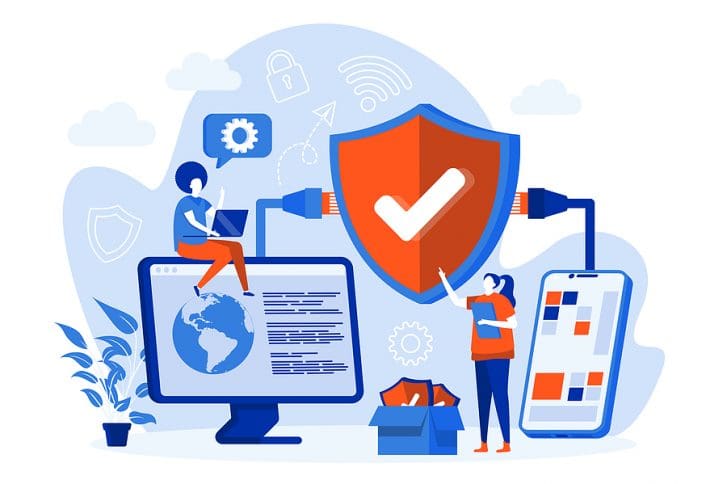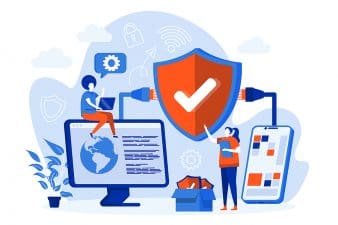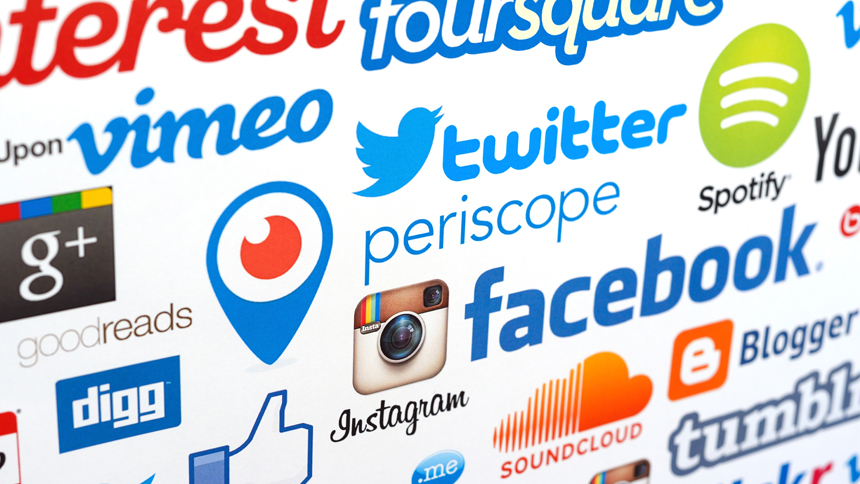
Whether you are a content creator, have a web design agency, run a freelance writing business, or sell your crafts online, you must not forget to make cybersecurity a cornerstone of your creative endeavors. It is important to remember that hackers can use any piece of stolen information for malicious means, so you must make your customers and their data the priority.
Remote work has impacted the media and creative industries as it has become the norm for these types of businesses. Cybersecurity becomes even more important when working remotely due to the decreased protocols and vulnerability to hackers in public spaces. If you start working out of a traditional office, you can also encounter a number of cybersecurity risks. If you don’t have the proper protections in place for your creative business, then you can start with these tips.
The importance of cybersecurity
As a small creative company, you may think that you are not at risk of cybercrime because you don’t stand out like the major enterprises. However, that couldn’t be further from the truth. The fact of the matter is that hackers often seek out the smaller companies because they know that either you don’t believe that your company is in danger or that you don’t have the resources necessary to protect your operation.
If your company does become the victim of a data breach, it could mean big trouble for your future. These days, the average breach can cost a company millions of dollars, and you may not have the funds to recover. Even worse, as a new business, you depend on the loyalty of your customers. If it is discovered that you put their data at risk, then they may decide to go to a competitor instead. That stain on your reputation could put your business in danger before you even gain traction.
That is why it is very important that you start protecting your company. That means learning about common threats like phishing scams and malware and also learning the tactics to properly defend your organization. Take the time to educate yourself by reading information online and talking to other small business operators about what they do to protect their customers.
Also, it is important to remember that it isn’t only bad actors that can put your company at risk. Often, human error is behind cybersecurity issues. The creation of weak passwords and the failure to install security updates can be the catalyst to vulnerability to cybercrimes. Learn about these internal threats so you can be protected on all fronts.
Considerations as your company grows
Protecting client information will become even more important as your operation expands and you begin to better understand what your clients truly want. Keep in mind that even if you aren’t collecting credit card and social security numbers, hackers may still want your data. Even email addresses and birth dates can be sold on the black market or used to commit phishing scams against your clients.
As you grow and start working with multiple parties, it is a smart idea to use collaboration software to help your team keep every digital activity in check. In addition to aiding in increased productivity and allowing the easy organization of documentation, many collaboration software packages store the information in the cloud. The great thing about cloud companies is that they often have their own security teams that monitor your data, and they can spot a threat right away before it becomes a bigger issue. If you vet the company and they have secure servers, you don’t have to worry about vulnerability as much and you can focus on running your business.
When your company has reached a point where you have more money to hire additional professionals, you may want to consider adding a department to your small business and bringing in an IT professional. In addition to managing your systems and introducing you to new tech, an IT expert also knows just about every cybersecurity threat, and they can spot a potential problem a mile away. The knowledge of an IT professional can also be helpful when securing the technology that could keep you ahead of your competitors.
Common-sense security
No matter how big your operation becomes, you still need to enact the basic security measures that can keep your company protected against common threats. The most essential of those is to use smart passwords on every program that you use throughout the day. A strong password will have a combination of numbers, letters, and special characters, and it should be paired with a form of two-factor authentication, like a fingerprint or eye scan, that cannot be easily duplicated.
You also need to find a good antivirus program and install it on all computers and remote devices. Use it to run scans every couple of days so that you can catch threats immediately before they can infect your system. Antivirus software is only useful if it is updated regularly, so always be on the lookout for new versions and install them right away to protect against the newest threats.
Finally, take the steps necessary to prevent hackers from accessing your systems and reaching your data at all costs. Be sure to incorporate a firewall that will keep hackers out in the first place. You can often put all of your devices on the same firewall. Then, in the case that hackers can get in, make sure to encrypt all of your data by using a virtual private network (VPN) that makes it so the criminals are unable to read your real information even if they get it in their possession. Both of these solutions aren’t very expensive, but they can be real lifesavers.
As you can see, there are many ways that you can protect your small creative business against the threats of hackers and cybercriminals. Implement these steps today, and you can watch your company grow without worrying about a costly breach.









